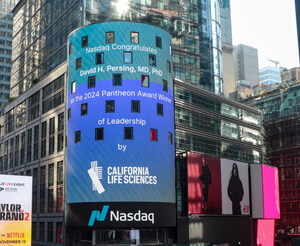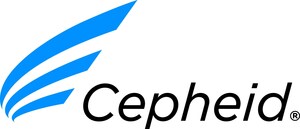Cepheid Receives FDA Clearance for Xpert SA Nasal Complete, the First Molecular Test for Simultaneous Detection and Differentiation of S. aureus & MRSA Colonization
Colonized Patients are Most at Risk for Serious Complications of S. aureus Infection
SUNNYVALE, Calif., June 8 /PRNewswire-FirstCall/ -- Cepheid (Nasdaq: CPHD) today announced it has received clearance from the U.S. Food & Drug Administration (FDA) to market Xpert® SA Nasal Complete, the first and only molecular test designed for the simultaneous detection and differentiation of both Staphylococcus aureus (SA) and Methicillin-resistant Staphylococcus aureus (MRSA) colonization in less than one hour. The test runs on Cepheid's GeneXpert® System, the world's leading molecular platform for accuracy, speed, and ease-of-use.
Up to 93% of hospital-acquired SA infections are caused by a patient's own colonized flora, making SA nasal carriers nearly 9 times more likely to develop surgical site infections (SSIs) than non-carriers.(1,2) Nasal carriage of SA is also a major risk factor for self-infection in dialysis, ICU and burn patients.(2,3,4)
"The availability of an accurate and rapid SA/MRSA test should help to improve clinicians' efforts to prevent and control Healthcare Associated Infections (HAIs) identified with colonized patients. HAIs in general are responsible for nearly $30 billion in associated healthcare expenses in the US each year," said John Bishop, Cepheid's Chief Executive Officer. "Surgical, trauma, burn and dialysis patients are most at risk for serious complications from SA infections, which lead to approximately 12,000 inpatient deaths annually in the US."(1)
US hospitals continue to struggle with the rising costs associated with management of HAIs — estimated at $9.5 billion for SA and $20 billion for MRSA annually.(5,6) A recent multicenter study, published in the New England Journal of Medicine, demonstrated that a program employing rapid molecular detection of SA colonization, followed by targeted decolonization, resulted in a 60% reduction in SSIs.(7)
"A rapid test for both SA and MRSA will have many applications for patients at risk of colonization," said Samir S. Awad MD, FACS, Associate Professor of Surgery, Chief, Section of Critical Care, Baylor College of Medicine. "Those applications include assisting physicians in targeting appropriate prophylactic therapy and decolonization to reduce the risk of post-surgical site infections."
Xpert SA Nasal Complete is Cepheid's tenth test to receive FDA clearance, and sixth in its expanding menu of industry-leading HAI products. Xpert SA Nasal Complete will be available for shipment this month. Visit www.cepheid.com for Cepheid's entire portfolio of molecular diagnostic products.
About the GeneXpert® System Molecular Diagnostic Platform
The GeneXpert System is a closed, self-contained, fully-integrated and automated platform that represents a paradigm shift in the automation of molecular analysis, producing accurate results in a timely manner with minimal risk of contamination. The GeneXpert System is the only system to combine on-board sample preparation with real-time PCR (polymerase chain reaction) amplification and detection functions for fully integrated and automated nucleic acid analysis. The system is designed to purify, concentrate, detect and identify targeted nucleic acid sequences thereby delivering answers directly from unprocessed samples. Modular in design, the GeneXpert System has a variety of configurations to meet the broad range of testing demands of any clinical environment.
About Cepheid
Based in Sunnyvale, Calif., Cepheid (Nasdaq: CPHD) is an on-demand molecular diagnostics company that develops, manufactures, and markets fully-integrated systems and tests for genetic analysis in the clinical, industrial and biothreat markets. The company's systems enable rapid, sophisticated genetic testing for organisms and genetic-based diseases by automating otherwise complex manual laboratory procedures. The company's easy-to-use systems integrate a number of complicated and time-intensive steps, including sample preparation, DNA amplification and detection, which enable the analysis of complex biological samples in its proprietary test cartridges. Through its strong molecular biology capabilities, the company is focusing on those applications where rapid molecular testing is particularly important, such as identifying infectious disease and cancer in the clinical market; and identifying bio-terrorism agents in the biothreat market. See http://www.cepheid.com for more information.
This press release contains forward-looking statements that are not purely historical regarding Cepheid's or its management's intentions, beliefs, expectations and strategies for the future, including those relating to product performance and future market opportunities. Because such statements deal with future events, they are subject to various risks and uncertainties, and actual results could differ materially from the company's current expectations. Factors that could cause actual results to differ materially include risks and uncertainties such as those relating to: unforeseen manufacturing problems; regulatory changes or developments; practices regarding testing timing and frequency; customer and market acceptance of the product; the failure of products to perform as fast or as accurately as expected, whether due to manufacturing errors, defects or otherwise; the impact of competitive products and pricing; potentially lengthy sales cycles in some markets; reimbursement rates for the products; and underlying market conditions worldwide. Readers should also refer to the section entitled "Risk Factors" in Cepheid's Annual Report on Form 10-K for 2009 and in its most recent quarterly report on Form 10-Q, each filed with the Securities and Exchange Commission.
All forward-looking statements and reasons why results might differ included in this release are made as of the date of this press release, based on information currently available to Cepheid, and Cepheid assumes no obligation to update any such forward-looking statement or reasons why results might differ.
References
- Critchley et al, Drug Discovery Today, 2006, Vol. 3 No. 2
- VL Yu et al., "Staphylococcus aureus nasal carriage and infection in patients on hemodialysis. Efficacy of antibiotic prophylaxis." NEJM July 1986
- Mackie et al, "Reduction in Staphylococcus aureus wound colonization.", Burns 1994; 20, (1), S14-S18
- Kooistra-Smid et al, "Molecular epidemiology of Staphylococcus aureus colonization in a burn center", Burns 2004, Feb; 30 (1), 27-33
- Noskin, Infection Control Hospital Epidemiology, 2008, Vol. 29, No. 1
- Saadatian-Eliahi et al, International Journal of Surgery, 2007, Vol. 6, Issue 3
- Bode et al, "Preventing Surgical-Site Infections in Nasal Carriers of Staphylococcus aureus", NEJM January 2010
CONTACTS: |
||
For Media Inquiries: |
For Cepheid Investor Inquiries: |
|
Jared Tipton Cepheid Corporate Communications 408-400-8377 |
Jacquie Ross Cepheid Investor Relations 408-400-8329 |
|
SOURCE Cepheid
WANT YOUR COMPANY'S NEWS FEATURED ON PRNEWSWIRE.COM?
Newsrooms &
Influencers
Digital Media
Outlets
Journalists
Opted In






Share this article